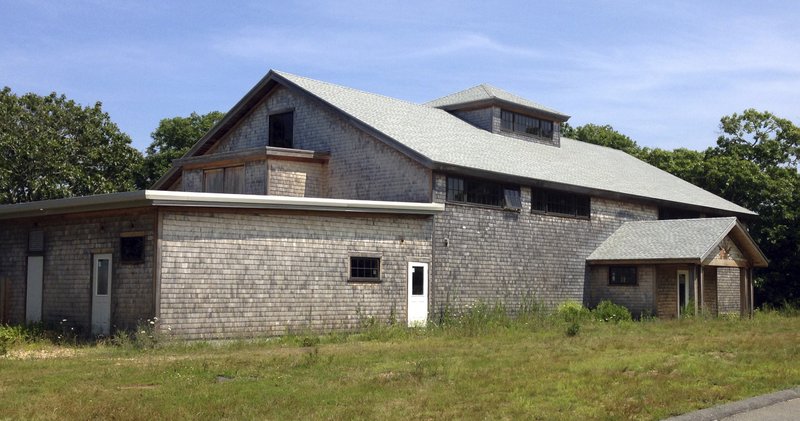AQUINNAH, Mass. -- Bright clay cliffs and a red-brick lighthouse draw visitors to a scenic overlook on the western tip of Martha's Vineyard.
The leaders of the Aquinnah Wampanoags, the federally recognized American Indian tribe whose ancestors first inhabited the island, envision a new attraction: They want to transform an unfinished tribal community center a few miles inland into a high-stakes bingo and poker hall filled with electronic betting machines.
The idea horrifies some long-term visitors, residents and even tribal members, who see it as incongruous with the quaint towns and soft sand beaches that have made the island off Cape Cod a preferred getaway for celebrities and other wealthy elites, including President Barack Obama and his family.
"Theft, vandalism, drugs, alcohol, you name it," said Town Selectman Julianne Vanderhoop, a tribal member who owns a bakery near the proposed site, ticking off the list of unwelcome "elements" she said gambling brings.
"There are a lot of things that are wrong for the island," she said. "This is certainly one of them."
At the same time, opponents acknowledge the tribe needs a sustainable cash flow.
Cheryl Andrews-Maltais, chairman of the tribe's gaming corporation, said the proposal represents the best chance for the tribe to tap into the tourist dollars that flow into the island each summer.
"I'm not saying people are going to be coming to Martha's Vineyard just because they want to game," she said. "But what else are you going to do once you've been to the beaches, the restaurants, the golf courses and the one movie theater? When you think about it, it's something new, something different."
The project faces significant challenges before it can become reality.
Gov. Deval Patrick is trying to block it, arguing in a federal lawsuit that the tribe forfeited its rights to open a casino when it reached a settlement in 1983 for the 485 acres it owns in Aquinnah.
Andrews-Maltais said she is confident the tribe will prevail and said it continues to seek investors for the estimated $10 million initial cost.
The plan, she said, is about bringing "economic self-sufficiency" to a roughly 1,200-member tribe that is "totally reliant" on federal subsidies and grants to provide services.
The tribe is not saying how much revenue it believes the casino -- which will not offer traditional slot machines or casino tables games like blackjack and roulette -- could generate.
Currently, the tribe's annual budget hovers around $5 million, which, Andrews-Maltais said, mostly provides elder care, child care, health care, home heating aid and other services for members who live on the island.
The Aquinnah Wampanoags received federal recognition in 1987 but trace their lineage to the inhabitants of the region some 10,000 years ago. Only about a one-fourth of the tribe's members live on Martha's Vineyard today. Most live on the mainland.
Of those on Martha's Vineyard, a number live in Aquinnah. Many tribal members struggle, like other full-time islanders, to secure steady jobs and affordable housing, Andrews-Maltais said. Few can afford to own property outright in Aquinnah or other communities "up-island," which have become favored destinations for the well-heeled.
Some tribal members living near the proposed casino site have concerns despite the potential benefits.
"Everyone on this street has young kids," said Nerissa Marshall as she played with her son in front of her home in the tribal housing development. "They really have to work out the safety issues."
SundayMonday Business on 08/31/2014

